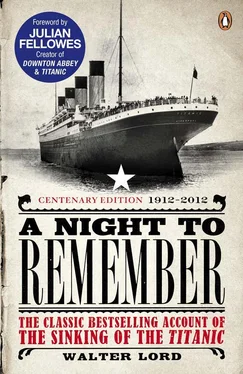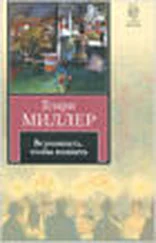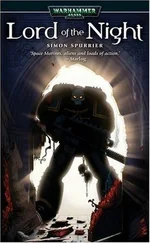Lightoller then lowered boat 4 level with A deck and ordered the women and children down to be loaded from there. It seemed safer that way—less chance of falling overboard, less distance to the water, and it helped clear the boat deck for hard work ahead. Too late he remembered the promenade deck was closed here and the windows were shut. While someone was sent to get the windows open, he hastily recalled everybody and moved aft to boat 6.
With one foot in No. 6 and one on deck, Lightoller now called for women and children. The response was anything but enthusiastic. Why trade the bright decks of the Titanic for a few dark hours in a rowboat? Even John Jacob Astor ridiculed the idea: ‘We are safer here than in that little boat.’
As Mrs J. Stuart White climbed into No. 8, a friend called, ‘When you get back you’ll need a pass. You can’t get back on tomorrow morning without a pass!’
When Mrs Constance Willard flatly refused to enter the boat, an exasperated officer finally shrugged: ‘Don’t waste time—let her go if she won’t get in!’
And there was music to lull them too. Bandmaster Wallace Henry Hartley had assembled his men, and the band was playing ragtime. Just now they stood in the first-class lounge, where many of the passengers waited before orders came to lower the boats. Later they moved to the boat deck forward, near the entrance to the grand staircase. They looked a little nondescript—some in blue uniform coats, some in white jackets—but there was nothing wrong with their music.
Everything had been done to give the Titanic the best band on the Atlantic. The White Star Line had even raided the Cunarder Mauretania for bandmaster Hartley. Pianist Theodore Brailey and cellist Roger Bricoux were easily wooed from the Carpathia . ‘Well, steward,’ they happily told Robert Vaughan who served them on the little Cunarder, ‘we will soon be on a decent ship with decent grub.’ Bass player Fred Clark had never shipped before, but he was well known on the Scottish concert circuit, and the line brought him away too. First violinist Jock Hume hadn’t yet played in any concerts, but his fiddle had a gay note the passengers seemed to love. And so it went—eight fine musicians who knew just what to do. Tonight the beat was fast, the music loud and cheerful.
On the starboard side things moved a little faster. But not fast enough for President Ismay, who dashed to and fro, urging the men to hurry. ‘There’s no time to lose!’ he urged Third Officer Pitman, who was working on boat 5. Pitman shrugged him off—he didn’t know Ismay and he had no time for an officious stranger in carpet slippers. Ismay told him to load the boat with women and children. This was too much for Pitman: ‘I await the commander’s orders,’ he announced.
Suddenly it dawned on him who the stranger might be. He eased down the deck, gave his hunch to Captain Smith and asked if he should do what Ismay wanted. Smith answered a crisp, ‘Carry on.’ Returning to No. 5, Pitman jumped in and called, ‘Come along, ladies!’
Mrs Catherine Crosby and her daughter Harriet were firmly propelled into the boat by her husband, Captain Edward Gifford Crosby, a Milwaukee shipping man and an old Great Lakes skipper. Captain Crosby had a way of knowing things—right after the crash he scolded his wife, ‘You’ll lie there and drown!’ Later he told her, ‘This ship is badly damaged, but I think the watertight compartments will hold her up.’ Now he was taking no chances.
Slowly others edged forward—Miss Helen Ostby… Mrs F. M. Warren… Mrs Washington Dodge and her five-year-old son… a young stewardess. When no more women would go alone, a few couples were allowed. Then a few single men. On the starboard side this was the rule all evening—women first, but men if there was still room.
Just aft, First Officer Murdoch, in charge of the starboard side, was having the same trouble filling No. 7. Serial movie star Dorothy Gibson jumped in, followed by her mother. Then they persuaded their bridge companions of the evening, William Sloper and Fred Seward, to join them. Others trickled in, until there were finally nineteen or twenty in the boat. Murdoch felt he could wait no longer. At 12.45 he waved away No. 7—the first boat down.
Then he ordered Pitman to take charge of No. 5, told him to hang around the after gangway, shook hands and smiled: ‘Good-bye, good luck.’
As No. 5 creaked downward, Bruce Ismay was beside himself. ‘Lower away! Lower away! Lower away! Lower away!’ he chanted, waving one arm in huge circles while hanging on to the davit with the other.
‘If you’ll get the hell out of the way,’ exploded Fifth Officer Lowe, who was working the davits, ‘I’ll be able to do something! You want me to lower away quickly? You’ll have me drown the whole lot of them!’
Ismay was completely abashed. Without a word he turned and walked forward to No. 3.
Old-timers in the crew gasped. They felt Lowe’s outburst was the most dramatic thing that could happen tonight. A Fifth Officer doesn’t insult the president of the line and get away with it. When they reached New York, there would be a day of reckoning.
And nearly everyone still expected to reach New York. At worst, they would all be transferred to other ships.
‘Peuchen,’ said Charles M. Hays as the major began helping with the boats, ‘this ship is good for eight hours yet. I have just been getting this from one of the best old seamen, Mr Crosby of Milwaukee.’
Monsieur Gatti, maître of the ship’s à la carte French restaurant, was equally unperturbed. Standing alone on the boat deck, he seemed the picture of dignity—his top hat firmly in place, grip in hand and a shawl travelling-blanket folded neatly over his arm.
Mr and Mrs Lucien Smith and Mr and Mrs Sleeper Harper sat quietly chatting in the gym just off the boat deck. The mechanical horses were riderless now—the Astors had moved off somewhere else. And for once there was no one on the stationary bicycles, which the passengers liked to ride, pedalling red and blue arrows round a big white clock. But the room with its bright, blocked linoleum floor and the comfortable wicker chairs was far more pleasant than the boat deck. Certainly it was warmer, and there seemed no hurry.
In the nearly empty smoking-room on A deck, four men sat calmly around a table—Archie Butt, Clarence Moore, Frank Millet, and Arthur Ryerson seemed deliberately trying to avoid the noisy confusion of the boat deck.
Far below, greaser Thomas Ranger began turning off some forty-five electric fans used in the engine room, and he thought about the ones he had to repair tomorrow. Electrician Alfred White, working on the dynamos, brewed some coffee at his post.
At the very stern of the Titanic , Quartermaster George Thomas Rowe still paced his lonely watch. He had seen no one, heard nothing since the iceberg glided by nearly an hour ago. Suddenly he was amazed to see a lifeboat floating near the starboard side. He phoned the bridge—did they know there was a boat afloat? An incredulous voice asked who he was. Rowe explained, and the bridge then realized he had been overlooked. They told him to come to the bridge right away and bring some rockets with him. Rowe dropped down to a locker one deck below, picked up a tin box with twelve rockets inside, and clambered forward—the last man to learn what was going on.
Others knew all too well by now. Old Dr O’Loughlin whispered to stewardess Mary Sloan, ‘Child, things are very bad.’ Stewardess Annie Robinson stood near the mail room, watching the water rise on F deck. As she puzzled over a man’s Gladstone bag lying abandoned in the corridor, carpenter Hutchinson arrived with a lead line in his hand—he looked bewildered, distracted, wildly upset. A little later Miss Robinson bumped into Thomas Andrews on A deck. Andrews greeted her like a cross parent:
Читать дальше












